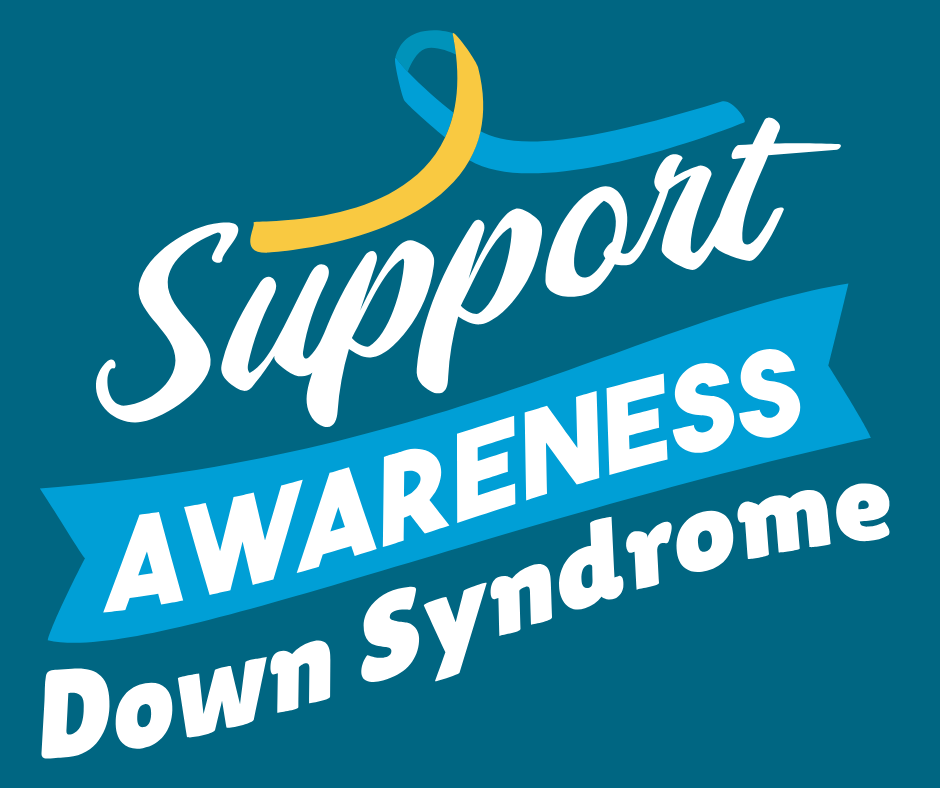


Down Syndrome Awareness Month

Down Syndrome Awareness Month: Facts and Action
October is Down Syndrome Awareness Month. This is the time to understand the facts, challenge misconceptions, and advance inclusion for individuals with Down syndrome in our communities.
The Facts
Down syndrome is a genetic condition caused by an extra copy of chromosome 21 (Trisomy 21). It affects approximately 1 in 700 babies born in the United States—roughly 6,000 annually. While individuals with Down syndrome may share certain physical characteristics and developmental patterns, each person is unique with distinct abilities, interests, and goals. The diagnosis does not define them.
What They’re Achieving
Individuals with Down syndrome are succeeding across multiple domains:
Education: Many participate in inclusive classrooms, graduate from high school, and attend post-secondary programs. With proper support and high expectations, academic success is achievable.
Employment: They work successfully in retail, hospitality, food service, office administration, healthcare, and other industries. They are reliable, dedicated employees who contribute meaningfully to their workplaces.
Athletics: From Special Olympics to competitive sports programs, they demonstrate athletic ability and dedication. Some compete at elite levels.
Advocacy: Many are effective self-advocates who speak publicly, educate others, and influence policy changes.
Myths That Need to End
Myth: People with Down syndrome are always happy.
Reality: They experience the full range of human emotions—joy, frustration, sadness, excitement—like everyone else.
Myth: They cannot learn or achieve independence.
Reality: With appropriate support, many live independently or semi-independently and make their own decisions.
Myth: Life expectancy is short.
Reality: Advances in medical care have increased life expectancy dramatically. Many now live into their 60s and beyond.
Language Matters
Use person-first language. Say “person with Down syndrome,” not “Down’s person.” Say “has Down syndrome,” not “suffers from Down syndrome.” Say “typical,” not “normal.” The language you use shapes perceptions and attitudes.
How to Support Inclusion
Inclusion benefits everyone. When individuals with Down syndrome participate fully in schools, workplaces, and social settings, it builds understanding and creates genuine connections.
Concrete actions:
- Educate yourself using reputable sources
- Challenge stereotypes when you encounter them
- Advocate for inclusive practices in your workplace and community organizations
- Build genuine relationships with people with Down syndrome based on shared interests
- Listen to and amplify self-advocates who share their own experiences
- Support organizations like The Arc of Laramie County that advance disability rights
The Bottom Line
Down Syndrome Awareness Month is about recognizing that individuals with Down syndrome are valued community members who contribute to schools, workplaces, and neighborhoods. The barriers they face come from outdated assumptions, not from their capabilities.
This month, focus on facts over stereotypes. Support inclusion through action, not just words. Our communities are stronger when everyone is valued and has access to opportunities. The future for individuals with Down syndrome is expanding—medical advances, educational opportunities, and growing acceptance are creating more possibilities than ever before.
Take the time this October to learn accurate information, challenge your assumptions, and advocate for genuine inclusion. That’s what awareness looks like in practice.
